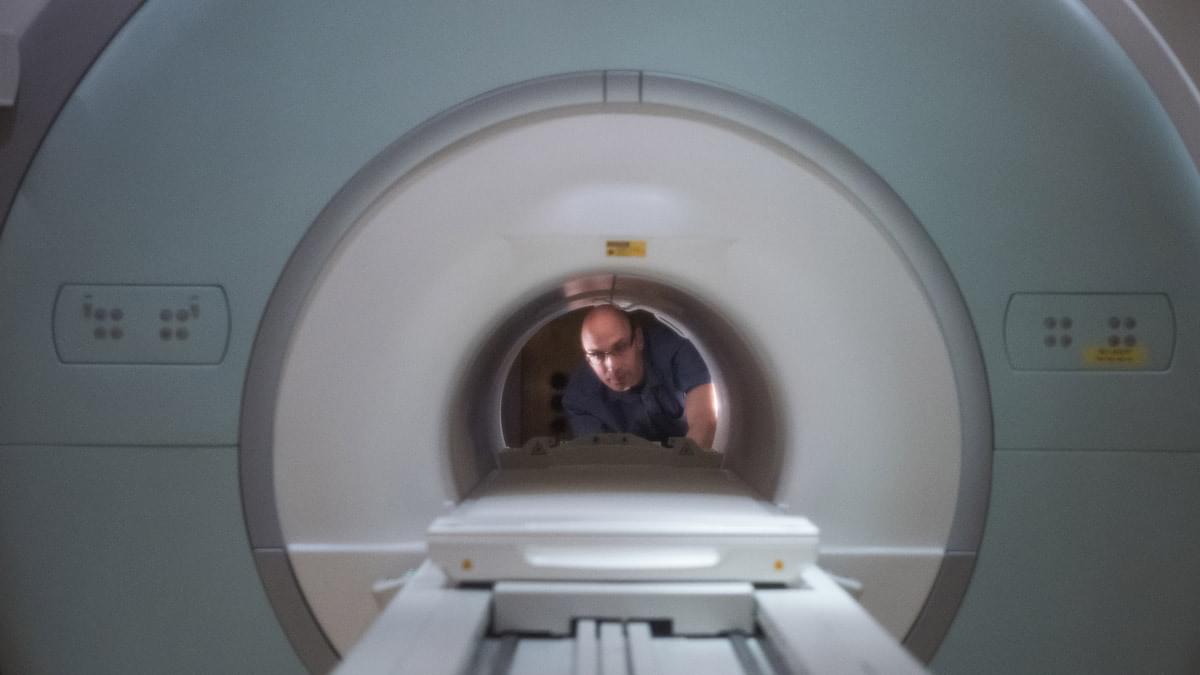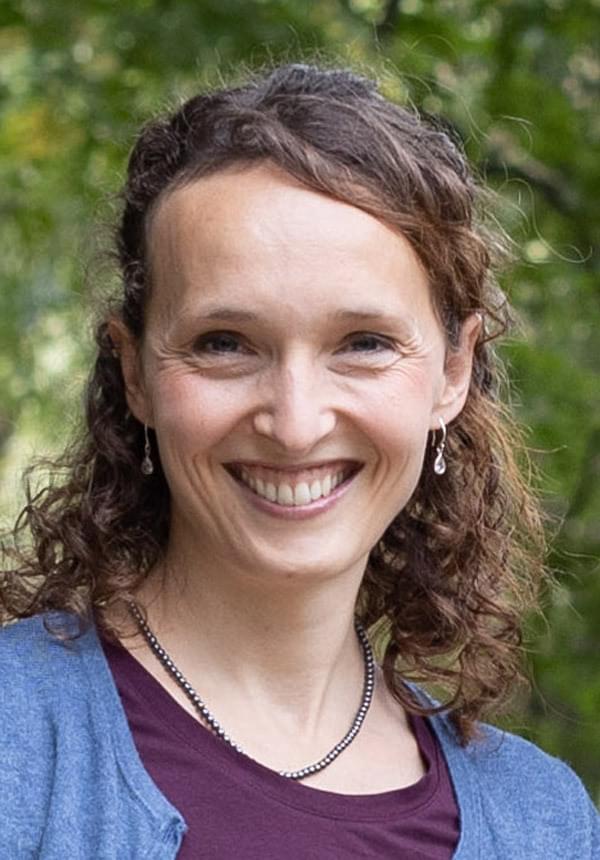
you by


Your Amazing Brain Live Experiment
This live lesson is your chance to see a brain experiment run live by scientists at the University of Oxford. Over the past three months, students in the Banbury area have been developing their own experiment ideas to find out more about how the brain works.
During the lesson, classes will learn about how an MRI scanner works, how scientists go about designing research and choosing questions, and what we might find out through running the experiment.
Learning objectives
- Explore a working brain scanning lab
- Apply knowledge to predict the outcome of the experiment
- Deepen understanding of the brain
- Develop working scientifically skills
Preparation
If you have never joined a live lesson before, visit the support centre, where you can find a range of technical and educational information.
This lesson is based around a live brain experiment. If you are not taking part in the Your Amazing Brain project directly, you can view the attached resources to see how participating schools are preparing. It will be useful if your class has some knowledge of the brain and working scientifically.
Questions generated by your class can be submitted via the Live Lessons tab in your profile.
Lesson steps
1. Introduction (5 mins)
The research team will open the live lesson with a welcome and introduction to Your Amazing Brain Live, as well as giving shout outs to students and schools. They will also cover how classes can interact during the live lesson.
2. Competition winners (5 mins)
It is the time that many classes have been waiting for. The winners of the Your Amazing Brain competition will be announced, with time for a round of applause for these excellent experiment ideas.
3. Introducing the MRI scanner (5 mins)
The research team introduces classes to the MRI scanner, with an overview of how it works and how it enables us to gain a better understanding of the structure and function of the brain.
4. Running the experiment (20 mins)
The research team will then run the winning experiment live. Classes will be asked to predict what they think will happen and then watch live as the results are shown on screen.
5. Q&A (10 mins)
During this live lesson, we will be using live chat questions to guide the conversation, and we will use this time at the end to cover any questions that haven’t been answered yet.
Follow-up activities
For all classes joining the live lesson, there is an opportunity to practise working scientifically skills. Student Sheet Brain experiment report will be helpful in structuring student reflection and evaluation.
Speakers

Dr Stuart Clare
Associate Professor, Wellcome Centre for Integrative Neuroimaging, University of Oxford

Dr Miriam Klein-Flugge
Sir Henry Wellcome Fellow, Department of Experimental Psychology, University of Oxford
Brought to you by


Featuring

With support from

Your Amazing Brain Live Experiment
This live lesson is your chance to see a brain experiment run live by scientists at the University of Oxford. Over the past three months, students in the Banbury area have been developing their own experiment ideas to find out more about how the brain works.
During the lesson, classes will learn about how an MRI scanner works, how scientists go about designing research and choosing questions, and what we might find out through running the experiment.
Learning objectives
- Explore a working brain scanning lab
- Apply knowledge to predict the outcome of the experiment
- Deepen understanding of the brain
- Develop working scientifically skills
Preparation
If you have never joined a live lesson before, visit the support centre, where you can find a range of technical and educational information.
This lesson is based around a live brain experiment. If you are not taking part in the Your Amazing Brain project directly, you can view the attached resources to see how participating schools are preparing. It will be useful if your class has some knowledge of the brain and working scientifically.
Questions generated by your class can be submitted via the Live Lessons tab in your profile.
Lesson steps
1. Introduction (5 mins)
The research team will open the live lesson with a welcome and introduction to Your Amazing Brain Live, as well as giving shout outs to students and schools. They will also cover how classes can interact during the live lesson.
2. Competition winners (5 mins)
It is the time that many classes have been waiting for. The winners of the Your Amazing Brain competition will be announced, with time for a round of applause for these excellent experiment ideas.
3. Introducing the MRI scanner (5 mins)
The research team introduces classes to the MRI scanner, with an overview of how it works and how it enables us to gain a better understanding of the structure and function of the brain.
4. Running the experiment (20 mins)
The research team will then run the winning experiment live. Classes will be asked to predict what they think will happen and then watch live as the results are shown on screen.
5. Q&A (10 mins)
During this live lesson, we will be using live chat questions to guide the conversation, and we will use this time at the end to cover any questions that haven’t been answered yet.
Follow-up activities
For all classes joining the live lesson, there is an opportunity to practise working scientifically skills. Student Sheet Brain experiment report will be helpful in structuring student reflection and evaluation.
Speakers

Dr Stuart Clare
Associate Professor, Wellcome Centre for Integrative Neuroimaging, University of Oxford

Dr Miriam Klein-Flugge
Sir Henry Wellcome Fellow, Department of Experimental Psychology, University of Oxford
Brought to you by


Featuring

With support from
